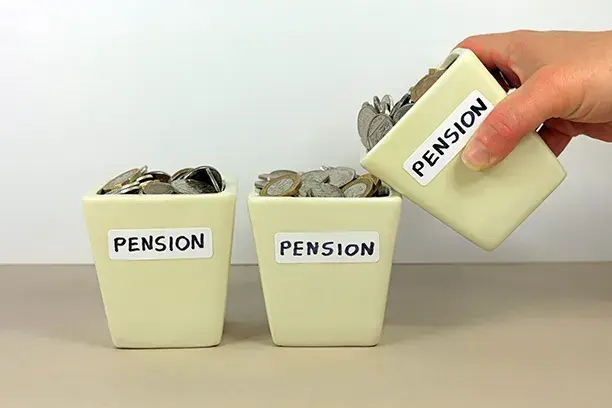The first thing you should do is get a state pension forecast and make sure that the records the Department for Work and Pensions (DWP) have are accurate. You need to have 35 full years of National Insurance (NI) contributions in order to qualify for the maximum state pension.
Even if you weren't working for all of that time, for example if you were raising a family, you should have still got NI credits. You might also be entitled to credits if you have provided childcare to grandchildren whilst their parents were at work. This is a little-known credit known as "specified adult childcare credits" and you can backdate your claim to 2011. This could mean a significant saving over buying added years. There is no minimum number of hours you need to be looking after the child, but the parent must be registered for child benefit, even if they didn't receive it.
For example, Denise only has 27 qualifying years towards her state pension as she retired at the same time as her husband Andrew. She is not eligible for the full state pension and will only receive £157.25 per week. However, she has been regularly looking after her two granddaughters whilst her daughter is working. By applying for specified adult childcare credits, she can transfer her daughter's unused credits to her own record, which gives her 35 qualifying years and entitlement to the full state pension of £203.85 per week. That's an uplift of £46.60 per week for the rest of her life.
If you don't have a full NI record, you can work longer to make up for any gaps, or you can make voluntary pension payments. Whether or not it is worth making additional contributions is quite complex. It will depend on your existing record, how long you are likely to live, and whether you might be eligible for pension credits.
Most people will only be able to plug any gaps over the last six years, but for men born after 1951 and women born after 1953, there is a short window of opportunity to plug gaps dating back to 2006. This window closes at the end of July, so you need to act quickly.
Should you defer your taking your state pension?
In short, it depends! Do you need the money now? How much tax do you pay? And how long are you going to live?
The deal for deferring your state pension isn't as good as it used to be, but it can still work out in your favour. As long as you defer for at least 9 weeks, you get an extra 1% for every 9 weeks. This means that if you defer for a full year, you will get an extra 5.8%. For those with the full state pension, that's an extra £11.82 a week, or an extra £614.64 over a year. This amount will also increase each year in line with inflation. The magic of compounding means that assuming 2.5% inflation, deferring for one year would mean being paid an extra £11,000 over 15 years, and the impact of this is exponential when you defer for longer.
However, assuming you defer for a year, this means you are missing out on £10,600 worth of income (assuming the current full state pension) in exchange for which you will get an extra 5.8% per year from next year. If that income is tax-free, then you would need to live 17 years to break even.
State pension income is included in your overall taxable earnings, so if you are still working and claiming the state pension were to tip you into higher or additional rate tax, the numbers look very different. Someone earning £150,000 per year would effectively pay 45% tax on their state pension, meaning that they would only net £5,830. If you defer your pension until next year when you are retired and a basic rate taxpayer, then the numbers start to look a lot more favourable. You still need to be mindful of your tax position in retirement, as over time, you could end up paying more tax in subsequent years.
The figures quoted above are based on 2023/24 tax year.
The tax treatment is dependent on individual circumstances and may be subject to change in future.
This article is for information purposes only, and should not be taken as advice. Please speak to your financial adviser if you require further information.











